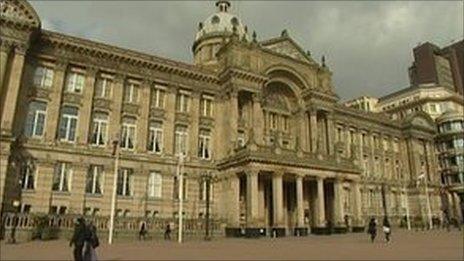Birmingham City Council facing £760m equal pay bill
- Published
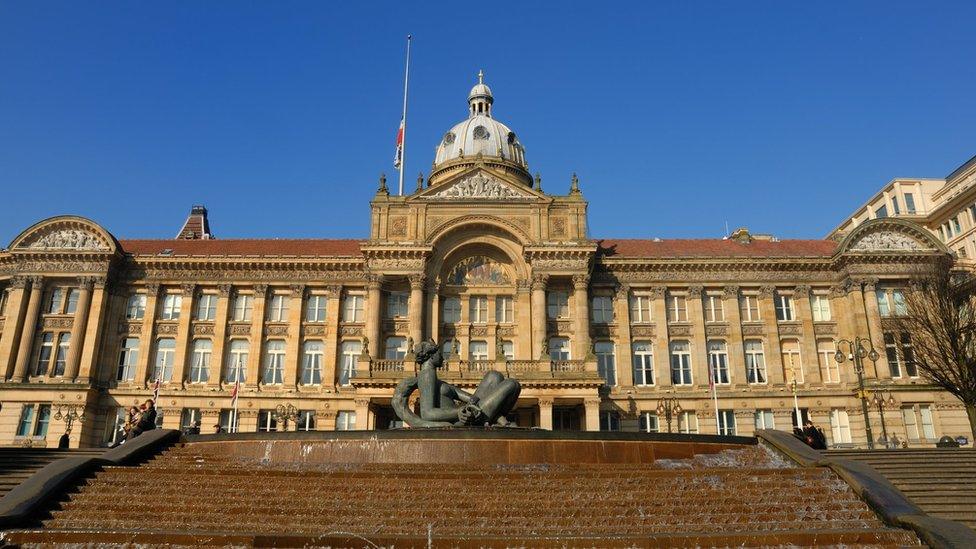
Fewer resources will be available in the future as Birmingham City Council said it will have to pay up to £760m to settle equal pay claims
Birmingham City Council has said it is in talks with the government after revealing it has to pay up to £760m to settle equal pay claims.
The bill is equivalent to its entire annual spending on services and is growing by up to £14m each month.
As a result, the local authority said it would have fewer resources in the future and would have to reprioritise where it spends taxpayers' money.
It also apologised for failing to get the situation under control.
The Labour-run council, the largest local authority in Europe, has already paid out £1.1bn to settle claims after a ruling at the Supreme Court over pay in 2012.
However, following the implementation of a new IT system, Oracle, analysis revealed the significant additional costs the council will need to pay.
"Given the huge sums involved the council cannot afford to pay this from existing resources, including reserves," the council said.
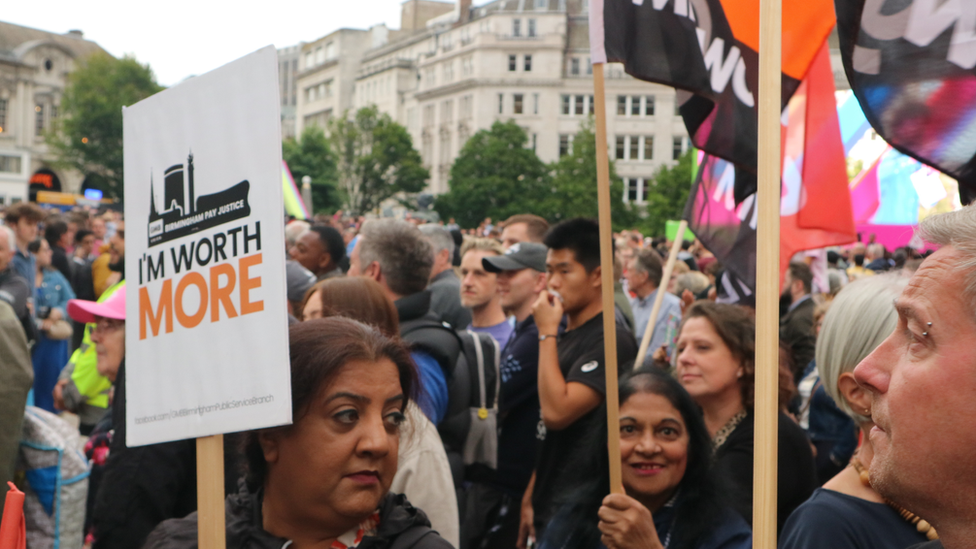
GMB union members protesting in Birmingham about the evaluation of their roles
As of March, the council's current equal pay liability was estimated to be between £650m and £760m.
The 2012 settlement followed a landmark court ruling which found hundreds of mostly female employees working in roles such as teaching assistants, cleaners and catering staff missed out on bonuses which were given to staff in traditionally male-dominated roles such as refuse collectors and street cleaners.
Michelle McCrossen from the GMB Union, which represents thousands of council workers, said the announcement was "shocking" and revealed the extent of pay discrimination at the council.
"GMB members in Birmingham City Council have been campaigning for equal pay for years, because we believed that the council's pay scheme discriminates against its women workers," she said.
"The extent of the discrimination is far worse than anyone could have imagined, and it's clear the council has learned nothing from their shameful history of undervaluing women's work."
In November 2021, the GMB union warned there could be a wave of fresh claims after new information emerged about how the council evaluated roles.
Ms McCrossen said the job evaluation system still had not been fixed and the council had "replicated the same mistakes" from the 2012 dispute.
"All they've done is kick the can down the road," she said. "Until the job evaluation system is fixed, equal pay liability will never be fixed."
'Financial black hole'
BBC Birmingham's political reporter Rob Mayor said it was another brutal financial blow for the council, just weeks after it was forced to admit the botched Oracle IT project could cost £100m, five times the original budget.
He added the local authority was clear that residents in Birmingham would feel the impact.
"On top of £1.1bn already spent, the outstanding bill for equal pay claims may now stand as high as £760m, more than the council spends in a year on services, and the bill is growing by as much as £14m a month.
"It's an ever deepening financial black hole and it's likely that government intervention will be needed to fix it."
Birmingham's Conservative Group hit out at the Labour administration's "failure to take action over the last decade".
Councillor Alex Yip described it as "financial chaos" and said the council was "unable to be trusted with the city's finances".
Meanwhile the city's Liberal Democrats said the announcement was "devastating news, especially for those most reliant on the services the council delivers".
Birmingham City Council said it was already taking action and was in discussion with the government and external auditors.
"These discussions remain ongoing as the council looks to explore a number of possible solutions," a spokesperson said.
Labour MP for Birmingham Selly Oak, Steve McCabe, said the council would likely be asking the government for financial support.
"The equal pay issues have clearly got to be settled," he said. "But what we don't want to end up with is a situation where a council that's already strapped for cash is forced to make even more cuts to services that people depend on."
The BBC has contacted the Department for Housing, Levelling Up and Communities for comment.

Follow BBC West Midlands on Facebook, external, Twitter, external and Instagram, external. Send your story ideas to: newsonline.westmidlands@bbc.co.uk, external
Related topics
- Published20 June 2023

- Published21 May 2023
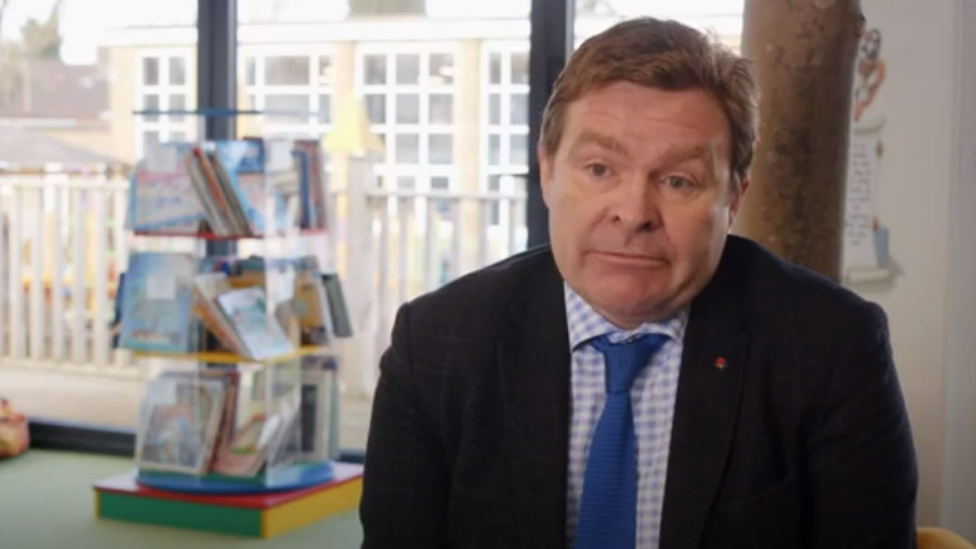
- Published8 August 2022
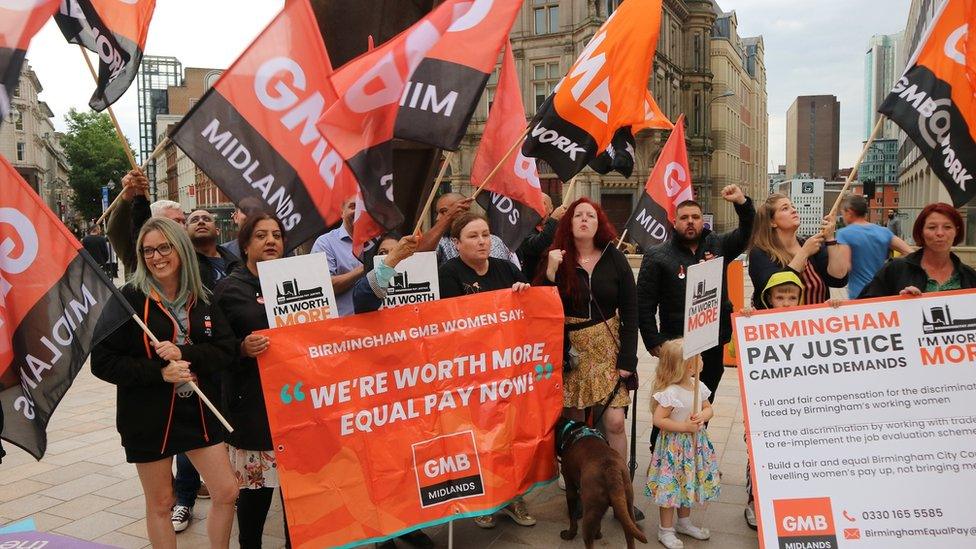
- Published11 November 2021
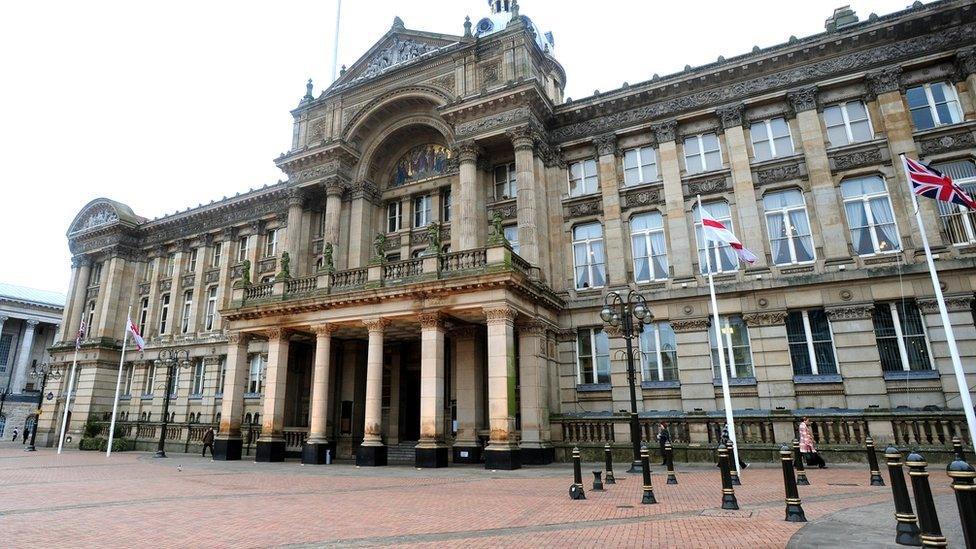
- Published12 November 2012
